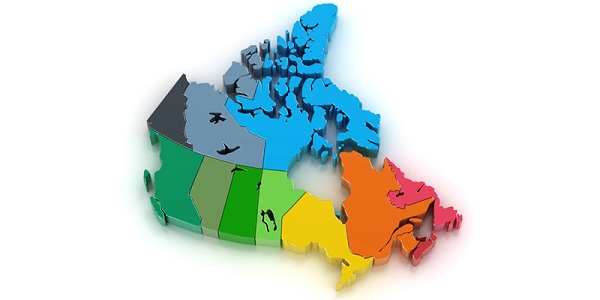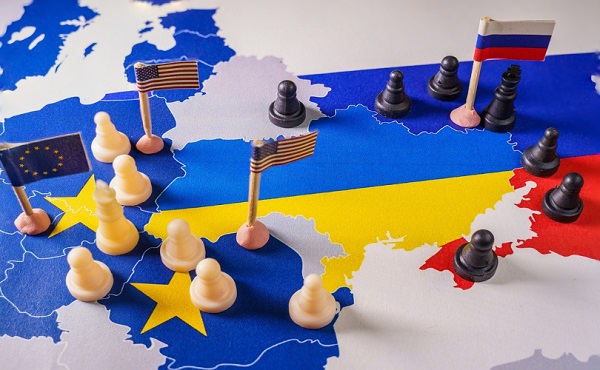News
New Tourism Region Formed In Alberta
By Sheldon Spackman
The Town of Rocky Mountain House has announced the formation of a new tourism region in Alberta. “David Thompson Country” has been formed through the joint efforts of the Town of Rocky, Village of Caroline and Clearwater County. The Region is a large area, covering more than 18,000 square kilometres containing Nordegg, Crimson Lake, Burnstick Lake and the Bighorn Back Country.
Officials say thousands of campers, hikers, mountain bikers and kayakers come to the area every year, and the region’s tourism industry plans to use the new name to better promote its existing features and help individuals and businesses market themselves and each other. They add the new brand makes talking about the region easier for tourists and business owners alike, allowing for the sharing of their experiences with others.
In a release, Rocky Mayor Fred Nash says “We all know how great it is to live, work and play here.” adding, “Naming the area after an adventurous, historical figure like David Thompson helps us show everyone why this is such a remarkable place to visit – if you can’t live here all year round.”
Caroline Mayor Rachele Peters says “Not only does the brand remind tourists about what they enjoy most when they visit our great backyard, we are working towards showcasing our natural advantages to people around the world.”
Clearwater County Reeve Pat Alexander says “We are very excited to promote David Thompson Country to our many visitors.” Adding, “Early explorers like David Thompson represent over 200 years of history where explorers travelled here, using the North Saskatchewan waters, to investigate the Howse Pass and the Rocky Mountains. Their discoveries set the stage for our communities to become what they are today.”
Officials say The David Thompson Country Tourism Group is in the process of developing a regional tourism website and has already started a Facebook page and YouTube Channel. The website will help tourists plan their visits with information on activities, events, and places to stay.
David Thompson’s name has historical significance for the region for his mapping of the area for both the North West Company and the Hudson Bay Company.
Business
Broken ‘equalization’ program bad for all provinces

From the Fraser Institute
By Alex Whalen and Tegan Hill
Back in the summer at a meeting in Halifax, several provincial premiers discussed a lawsuit meant to force the federal government to make changes to Canada’s equalization program. The suit—filed by Newfoundland and Labrador and backed by British Columbia, Saskatchewan and Alberta—effectively argues that the current formula isn’t fair. But while the question of “fairness” can be subjective, its clear the equalization program is broken.
In theory, the program equalizes the ability of provinces to deliver reasonably comparable services at a reasonably comparable level of taxation. Any province’s ability to pay is based on its “fiscal capacity”—that is, its ability to raise revenue.
This year, equalization payments will total a projected $25.3 billion with all provinces except B.C., Alberta and Saskatchewan to receive some money. Whether due to higher incomes, higher employment or other factors, these three provinces have a greater ability to collect government revenue so they will not receive equalization.
However, contrary to the intent of the program, as recently as 2021, equalization program costs increased despite a decline in the fiscal capacity of oil-producing provinces such as Alberta, Saskatchewan, and Newfoundland and Labrador. In other words, the fiscal capacity gap among provinces was shrinking, yet recipient provinces still received a larger equalization payment.
Why? Because a “fixed-growth rule,” introduced by the Harper government in 2009, ensures that payments grow roughly in line with the economy—even if the gap between richer and poorer provinces shrinks. The result? Total equalization payments (before adjusting for inflation) increased by 19 per cent between 2015/16 and 2020/21 despite the gap in fiscal capacities between provinces shrinking during this time.
Moreover, the structure of the equalization program is also causing problems, even for recipient provinces, because it generates strong disincentives to natural resource development and the resulting economic growth because the program “claws back” equalization dollars when provinces raise revenue from natural resource development. Despite some changes to reduce this problem, one study estimated that a recipient province wishing to increase its natural resource revenues by a modest 10 per cent could face up to a 97 per cent claw back in equalization payments.
Put simply, provinces that generally do not receive equalization such as Alberta, B.C. and Saskatchewan have been punished for developing their resources, whereas recipient provinces such as Quebec and in the Maritimes have been rewarded for not developing theirs.
Finally, the current program design also encourages recipient provinces to maintain high personal and business income tax rates. While higher tax rates can reduce the incentive to work, invest and be productive, they also raise the national standard average tax rate, which is used in the equalization allocation formula. Therefore, provinces are incentivized to maintain high and economically damaging tax rates to maximize equalization payments.
Unless premiers push for reforms that will improve economic incentives and contain program costs, all provinces—recipient and non-recipient—will suffer the consequences.
Authors:
National
Liberals, NDP admit closed-door meetings took place in attempt to delay Canada’s next election

From LifeSiteNews
Pushing back the date would preserve the pensions of some of the MPs who could be voted out of office in October 2025.
Aides to the cabinet of Prime Minister Justin Trudeau confirmed that MPs from the Liberal and New Democratic Party (NDP) did indeed hold closed-door “briefings” to rewrite Canada’s elections laws so that they could push back the date of the next election.
The closed-door talks between the NDP and Liberals confirmed the aides included a revision that would guarantee some of its 28 MPs, including three of Trudeau’s cabinet members, would get a pension.
Allen Sutherland, who serves as the assistant cabinet secretary, testified before the House of Commons affairs committee that the changes to the Elections Act were discussed in the meetings.
“We attended a meeting where the substance of that proposal was discussed,” he said, adding that his “understanding is the briefing was primarily oral.”
According to Sutherland, as reported by Blacklock’s Reporter, it was only NDP and Liberal MPs who attended the secret meetings regarding changes to Canada’s Elections Act via Bill C-65, An Act to Amend the Canada Elections Act before the bill was introduced in March.
As reported by LifeSiteNews before, the Liberals were hoping to delay the 2025 federal election by a few days in what many see as a stunt to secure pensions for MPs who are projected to lose their seats. Approximately 80 MPs would qualify for pensions should they sit as MPs until at least October 27, 2025, which is the newly proposed election date. The election date is currently set for October 20, 2025.
Sutherland noted when asked by Conservative MP Luc Berthold that he recalled little from the meetings, but he did confirm he attended “two meetings of that kind.”
“Didn’t you find it unusual that a discussion about amending the Elections Act included only two political parties and excluded the others?” Berthold asked.
Sutherland responded, “It’s important to understand what my role was in those meetings which was simply to provide background information.”
Berthold then asked, “You nevertheless suggested amendments to the legislation including a change of dates?”
“My role was to provide information,” replied Sutherland, who added he could not provide the exact dates of the meetings.
MPs must serve at least six years to qualify for a pension that pays $77,900 a year. Should an election be called today, many MPs would fall short of reaching the six years, hence Bill C-65 was introduced by the Liberals and NDP.
The Liberals have claimed that pushing back the next election date is not over pensions but due to “trying to observe religious holidays,” as noted by Liberal MP Mark Gerretsen.
“Conservatives voted against this bill,” Berthold said, as they are “confident of winning re-election. We don’t need this change.”
Trudeau’s popularity is at a all-time low, but he has refused to step down as PM, call an early election, or even step aside as Liberal Party leader.
As for the amendments to elections laws, they come after months of polling in favour of the Conservative Party under the leadership of Pierre Poilievre.
A recent poll found that 70 percent of Canadians believe the country is “broken” as Trudeau focuses on less critical issues. Similarly, in January, most Canadians reported that they are worse off financially since Trudeau took office.
Additionally, a January poll showed that 46 percent of Canadians expressed a desire for the federal election to take place sooner rather than the latest mandated date in the fall of 2025.
-

 ESG2 days ago
ESG2 days agoCan’t afford Rent? Groceries for your kids? Trudeau says suck it up and pay the tax!
-

 John Stossel2 days ago
John Stossel2 days agoGreen Energy Needs Minerals, Yet America Blocks New Mines
-

 Daily Caller2 days ago
Daily Caller2 days agoLos Angeles Passes ‘Sanctuary City’ Ordinance In Wake Of Trump’s Deportation Plan
-

 Alberta2 days ago
Alberta2 days agoProvince considering new Red Deer River reservoir east of Red Deer
-

 Addictions2 days ago
Addictions2 days agoBC Addictions Expert Questions Ties Between Safer Supply Advocates and For-Profit Companies
-

 Aristotle Foundation2 days ago
Aristotle Foundation2 days agoToronto cancels history, again: The irony and injustice of renaming Yonge-Dundas Square to Sankofa Square
-

 conflict1 day ago
conflict1 day agoUS and UK authorize missile strikes into Russia, but are we really in danger of World War III?
-

 armed forces1 day ago
armed forces1 day agoJudge dismisses Canadian military personnel’s lawsuit against COVID shot mandate






